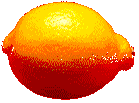Nikki (mop@intekom.co.za)
Although I am a vegetarian, I dont really support veganism personally. I grew up on a dairy farm and the cows did not suffer when they were milked. The bees got a wee bit upset when we tried to take their honey but I dont think they suffered. As long as there is no death and pain involved for my dietry satisfaction, I dont mind eating cheese or drinking milk or wearing silk. Leather however is a bit of a problem for me. The animal did die, not so much for the nice shoes but for dietry purposes.
Tuesday, November 04, 1997 at 09:47:51 (SAT)
Jacqlyn (info@animals.co.za)
After some research into this topic, I have found:
- Omega-3 acids are a group of fatty acids, many of which are found in uncooked plant material, such as nuts, avocados, etc.
- The specific omega-3 f.a. you are referring to, which is only found in fish and eggs, is called DHA and probably related to brain and visual functioning.
- Humans can convert an omega-6 fatty acid (lineolic acid) into DHA, provided they get enough of it in their diet. So low-fat vegan diets are likely to be deficient in this.
- Modern processed fish and battery eggs have little DHA, especially after cooking.
As for the speculation that cows are less intelligent due to a lack of DHA, I would like to say that the purpose of this fatty acid has not yet been determined and it is not necessarily related to intelligence. And even if it were related to our particular form of intelligence, it does not discount the possibility of equivalent intelligence in other animals.
Tuesday, November 04, 1997 at 08:55:04 (SAT)
Jacqlyn (jacqlyn@intekom.co.za)
In answer to dannie:
It depends on what your reasons are: if you wish to ensure that you are not supporting any cruelty, then it is necessary to cut out dairy products, leather, etc.
Monday, November 03, 1997 at 09:14:25 (SAT)
A. Pasmur (ajp3@acpub.duke.edu)
Avoiding meat can highly deleterious to one's diet. There are numerous nutrients crucial to one's well-being that can only be found in certain meats. Consider the omega III fatty acids of deep-sea fish such as Salmon; can one obtain so complex an animal-based nutrient from plants? Absolutely not. Perhaps this is why cows, strict vegetarians, lack the intelligence of Primates such as ourselves, for these fatty acids appear to fortify mental abilities. Perhaps this could even explain the especially brilliant mental performance of the Japanese, who are avid fish eaters. In the name of moderation, consider not entirely excluding meat from your diet.
Saturday, November 01, 1997 at 19:59:16 (SAT)
dannie (keam@intekom.co.za)
it is fine to be a vegetarian but it is pushing a point to expect others to follow the strcter doctrine of being a vegan . anima like cheese milk etc should still be used
Saturday, November 01, 1997 at 11:35:36 (SAT)








